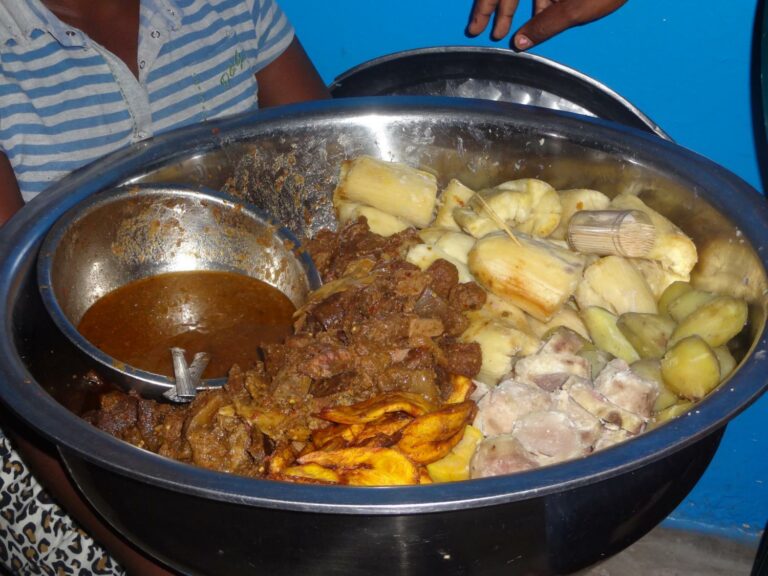Introduction to Liberian Cuisine
Liberian cuisine is a blend of African, European, and American culinary traditions, shaped by the country’s unique history and cultural influences. The food is characterized by the use of locally sourced ingredients like cassava, plantains, yams, and rice, as well as a variety of spices and seasonings. Liberian cuisine is known for its rich and hearty stews, soups, and sauces, which are often served with rice or fufu, a starchy staple made from cassava or plantains.
Overview of Liberian Folklore
Liberian folklore is a rich and vibrant tradition that reflects the country’s diverse ethnic and cultural heritage. The tales and stories passed down through generations often center around themes of magic, the supernatural, and the power of nature. Many of these stories feature characters like witches, spirits, and otherworldly beings, who are believed to have the ability to influence the human world.
Beliefs in Food and Spirituality
In Liberian culture, food is often associated with spirituality and religious beliefs. Many Liberians believe that the act of preparing and sharing food can bring people closer together and foster a sense of community. Certain foods are also believed to have spiritual properties, such as the kola nut, which is often used in traditional ceremonies and rituals.
Traditional Liberian Ingredients
Liberian cuisine relies heavily on locally sourced ingredients, many of which are also used in traditional medicine and herbal remedies. Cassava, for example, is a staple crop that is used to make fufu, a starchy side dish that is often served with stews and soups. Other popular ingredients include plantains, yams, peanuts, and a variety of leafy greens like collard greens and bitterleaf.
Symbolism in Liberian Cuisine
Liberian cuisine is rich in symbolism, with many dishes and ingredients carrying cultural significance. For example, jollof rice, a popular West African dish, is often served at special occasions like weddings and funerals. Kala, a deep-fried pastry made from flour and sugar, is traditionally served to guests as a symbol of hospitality and generosity.
The Intersection of Food and Culture
In Liberian culture, food is more than just sustenance – it is a symbol of identity, tradition, and community. The country’s rich culinary heritage reflects its diverse cultural influences, from African and European to American and Caribbean. By exploring the unique flavors and ingredients of Liberian cuisine, we can gain a deeper understanding of the country’s rich cultural tapestry and the role that food plays in shaping its identity.

